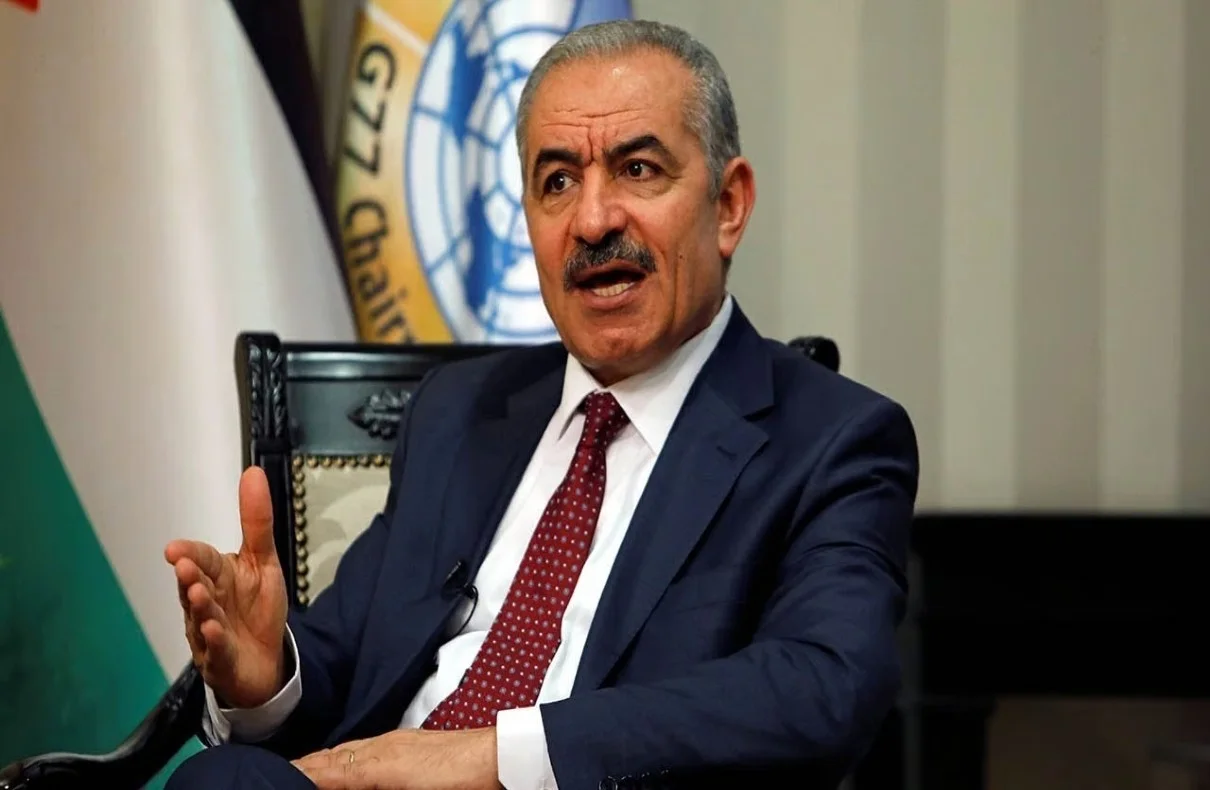Palestinian Prime Minister Mohammed Shtayyeh announced his resignation, along with his cabinet, on Monday. This move could potentially signal a significant shift in Palestinian leadership and pave the way for much-needed reforms in the governance of the Gaza Strip. Shtayyeh’s decision comes amidst ongoing discussions and negotiations between Israel and Hamas to reach a long-lasting ceasefire.
To fully comprehend the significance of Shtayyeh’s resignation, we must first understand the ongoing Israeli-Palestinian conflict. The conflict is rooted in decades of territorial disputes, political disagreements, and differing visions for the future of the region. The Palestinian Authority, led by President Mahmoud Abbas and Prime Minister Shtayyeh, has been striving for Palestinian self-governance and statehood. However, the situation in the Gaza Strip remains complex and volatile.
Shtayyeh’s decision to resign comes as a response to the escalating violence in the West Bank and Jerusalem, as well as the devastating war and humanitarian crisis in the Gaza Strip. In a cabinet meeting held in Ramallah, Shtayyeh emphasized the need for new governmental and political arrangements that take into account the current reality in Gaza. This move is seen as a potential step towards a post-war overhaul and a united Palestinian leadership.
Since 2007, when Hamas ousted the Palestinian Authority from Gaza in a violent coup, the relationship between the two entities has been strained. While the Palestinian Authority still maintains administrative control over parts of the West Bank, its influence in Gaza has been limited. Shtayyeh’s resignation could be a sign of the Palestinian Authority’s willingness to address the governance issues in Gaza and work towards a unified Palestinian leadership.
With Shtayyeh’s resignation, the Palestinian Authority now faces the task of selecting a new prime minister. It is widely speculated that Mohammad Mustafa, the chairman of the Palestine Investment Fund, will be chosen for this role. Mustafa’s extensive experience in finance and economic development could be instrumental in implementing much-needed reforms in the Palestinian Authority and revitalizing the governance structure in Gaza.
Exploring the Origins of Cosmic Rays in the Milky Way
The resignation of Shtayyeh and his government presents both challenges and opportunities for Palestinian unity. The Palestinian Authority, under President Abbas, has been criticized for its alleged corruption, lack of democratic processes, and disconnect from the Palestinian people. However, the willingness to reform and address these concerns indicates a potential turning point in Palestinian politics.
The United States has played a significant role in mediating negotiations between Israel and Palestine. Secretary of State Antony Blinken has emphasized the importance of reforms, combating corruption, and empowering civil society within the Palestinian Authority. The Biden administration’s stance on the future governance of Gaza remains unclear, but they have indicated that the Palestinian Authority may have a role to play.
Amidst these political developments, talks have resumed in Qatar with the aim of achieving a long-term ceasefire between Israel and Hamas. Such an agreement would not only halt the ongoing violence but also potentially lead to the release of hostages held in Gaza and Palestinians imprisoned by Israel. The details and timeline of the ceasefire are yet to be determined.
While negotiations for a ceasefire continue, Israel is considering expanding its ground offensive against Hamas to Rafah, a city on the Gaza-Egypt border. This has raised concerns about the well-being of the civilian population, as over half of Gaza’s 2.3 million residents have sought refuge in Rafah. Humanitarian aid and supplies are urgently needed, and the international community has called for increased access to Gaza.
The future of Gaza and the West Bank remains uncertain. The Israeli government, led by Prime Minister Benjamin Netanyahu, has expressed its desire to maintain a security presence in Gaza and has been resistant to the involvement of the Palestinian Authority.
Cannabis Use and Its Association with Heart Attack
On the other hand, President Abbas has stated his willingness to reform the Palestinian Authority and unite Gaza and the West Bank under Palestinian leadership. Finding a balance between these differing visions will be crucial for the long-term stability of the region.
The resignation of Palestinian Prime Minister Mohammed Shtayyeh and his government marks a significant turning point in Palestinian leadership. The willingness to address governance issues in Gaza and implement much-needed reforms presents an opportunity for Palestinian unity and a renewed focus on the aspirations of the Palestinian people. As negotiations for a ceasefire continue, the international community and key players, including the United States, have a vital role to play in supporting the Palestinian Authority’s efforts and facilitating a peaceful resolution to the Israeli-Palestinian conflict.
As the situation unfolds and new developments emerge, it is crucial for all stakeholders to work towards a just and lasting solution that respects the rights and aspirations of both Israelis and Palestinians. Only through genuine dialogue, cooperation, and a commitment to peace can the region move forward towards a brighter and more stable future.
